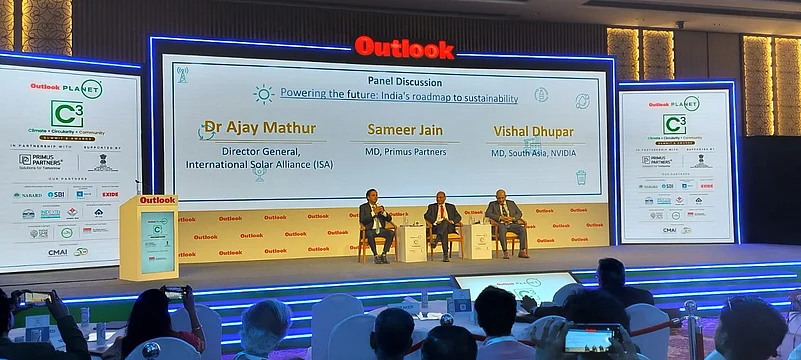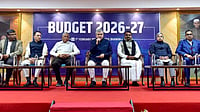India needs to scale up its compute power consumption from 0.5% to at least 3%, as its current status is far below the global average because of its relatively small compute fabric despite the country's large population, said Vishal Dhupar Managing Director, Asia South at NVIDIA.
“India must scale up to at least 3% of compute power consumption, but if we continue relying on traditional computing models, it will be an expensive path,” added Dhuper.
Speaking at the Outlook Planet C3 event, NVIDIA, Managing Director, Asia South also said, “However, this presents a unique advantage—since our compute adoption is still growing, we have the opportunity to leapfrog to more energy-efficient computing infrastructure, avoiding the inefficiencies of legacy systems.”
Underlining the evolving form of technology, Dhupar also said that for the first time in history, intelligence is not merely evolving—it is being deliberately built.
India is undergoing significant energy transformation by converging renewable energy, digital technologies, storage solutions, and smart grid innovations. With India standing at the threshold to become a developed nation, the integration of energy with technology is important to meeting the country’s ambitious clean energy targets and ensuring energy security, he added.
When AI is leading every sector, Dhuper reiterated the importance of integrating energy and technology and said, “We need to optimize the efficiency and longevity of solar panels using AI, accelerating India's progress toward energy leadership.”
According to the data of IBEF (Indian Brand Equity Foundation), as India's energy demand is expected to increase more than that of any other country in the coming decades that is why India intends to achieve net zero carbon emissions by 2070 and to meet 50% of its electricity needs from renewable sources by 2030 marks a historic point in the global effort to combat climate change.
“Moreover, directing this captured energy to the right industries and manufacturing processes will accelerate India's transition from 6% renewable energy toward a higher share, bringing the nation closer to its 2047 energy goals—faster and more efficiently,” added Dhuper.



























